- What is cast iron cookware?
- How is Cast Iron Cookware Made?
- Why Is Cast Iron Cookware Better?
- Is cast iron cookware safe?
- Why is Cast Iron Cookware best for searing food?
- Can Cast Iron Cookware rust?
- Is Cast Iron Cookware Non-stick?
- Can cast iron cookware be used on an induction cooktop?
- Can cast iron cookware be used on glass top surfaces?
- Can cast iron cookware be used in the dishwasher?
- Can cast iron cookware be used in the oven?
- Where can I buy good cast iron cookware in India (Delhi, Bengaluru)?
- Best Cast Iron Cookware Brand in India
1. What is cast iron cookware?
Cast iron cookware are heavy-duty cookware that are made of cast iron. These cookware are valued for their heat retention, ability to withstand high temperatures, durability and non-stick-like cooking surface when properly seasoned.
2. How is Cast Iron Cookware Made?
A natural cast iron cookware is created by melting blocks of iron and steel together. To remove impurities, vermiculite is then added to the molten mixture. The molten metal is poured into a mold that is created from natural materials like sand, water, and powdered clay. The formed cookware is then shaken and tumbled to remove molding sand. The cookware- freshly out of the mold is shot blasted with a fine steel shot so that any residual molding sand is removed. Once this is done the cookware is grounded, polished, rinsed, and hung to dry with a steam dryer.
3. Why Is Cast Iron Cookware Better?
They last a lifetime –This is one of the reasons cast iron has been so popular over the century. This cookware is made to last and is virtually indestructible.
They are versatile –Your cast iron skillet can be used on almost any cooktop – induction, oven to open flame.
Naturally non-stick -ust keep seasoning your cast-iron regularly and you will have the most natural non-stick cookware ever – way better than Teflon!
Retains heat – Cast iron may heat up slowly, but once it is hot, it can retain heat and distribute it evenly throughout the skillet.
4. Is cast iron cookware safe?
Yes, cooking in cast iron cookware is completely safe given that it is a natural cookware. Moreover, it is a natural non-stick cookware wherein you do not have to worry about toxic fumes and harmful compounds being leached into the food. In fact, doctors often recommend patients suffering from low iron levels to eat food cooked in cast iron cookware because cast iron fortified food with iron helping you boost iron levels in your body.
5. Why is Cast Iron Cookware best for searing food?
Cast iron maintains heat- once your skillet is hot, it will stay hot for a long period of time which makes cast iron ideal for high-heat applications like searing steak. The temperature drop that takes place when a relatively low- temperature steak is added to the hot skillet has a really small effect in a cast-iron skillet, allowing for higher heat and better browning.
6. Can Cast Iron Cookware rust?
Yes, your cast iron skillet can rust if you leave it moist or do not season it regularly. Cast-iron skillets are naturally prone to rust. But even if it has turned bright orange, the pot absolutely can be fixed with seasoning. Rust can indeed be a bit of an inconvenience but a few simple steps and your rusted cast iron will look brand new.
7. Is Cast Iron Cookware Non-stick?
Yes, cast iron is naturally non-stick. Just keep it seasoning right and regularly. Seasoning not only acts as a method of preserving your skillet but also gives it a natural non-stick coating which is way better than Teflon.
8. Can cast iron cookware be used on an induction cooktop?
Cast iron cookware works well on an induction cooking surface as an induction works well with a cookware with high ferrous metal content at the base. Even stainless steel will work well on an induction surface if the base of the pan has a magnetic grade of stainless steel.
9. Can cast iron cookware be used on glass top surfaces?
If cast iron cookware is in its natural form that is bare then it will have a rough texture, which means that it is not advisable to use the cookware on a glass or ceramic cooktop. However, if cast iron is enameled then it can be safely used on glass or ceramic surfaces.
10. Can cast iron cookware be used in the dishwasher?
Usually, cast iron is one cookware that should not be kept in a dishwasher as once it goes into a dishwasher your seasoning is gone. The process of scrubbing, warm water as well as detergent effectively removes the seasoning of the pan. Also, dishwashing can cause rust on the iron cookware as it is in a raw unprocessed state.
11. Can cast iron cookware be used in the oven?
Yes, cast iron is completely oven safe and you can easily transfer it from the stovetop to the oven. Enameled cast iron works well with very high temperatures, but you will need to replace the plastic knobs with steel.
12. Where can I buy good cast iron cookware in India (Delhi, Bengaluru)?
1). Bengaluru Jayanagar Flagship Store
36/1, 27th Cross, 6th C Main Road, Next to Sapna Book House, Jayanagar 4th Block, Bengaluru - 560011 9:30 AM to 8:30 PM
2). Delhi Lajpat Nagar Flagship Store
30, Ground Floor, Link Road, Lajpat Nagar-3, New Delhi - 110024 10:00 AM to 8:30 PM
3). Delhi GK1 M-Block Flagship Store
M-41, Ground Floor, M-Block Market, Greater Kailash-1, Delhi 110048 10:30 AM to 8:30 PM
13. Best Cast Iron Cookware Brand in India
Now that you have learned all the facts about cast iron cookware and have decided to purchase it for cooking amazing meals for your family, here’s helping you find the best cookware range in India. Meyer Cast Iron cookware range is unbeatable and unmatchable in terms of built, quality and durability. Pre-seasoned with vegetable oil, the range has an assortment of cookware choices that will help you churn out your everyday meal with ease. From excellent cast iron tawa to superior cast iron kadai, the range has everything that you need in the kitchen to cook delicious Indian meals
Lets watch one recipe made up in Cast Iron
Explore the Range here

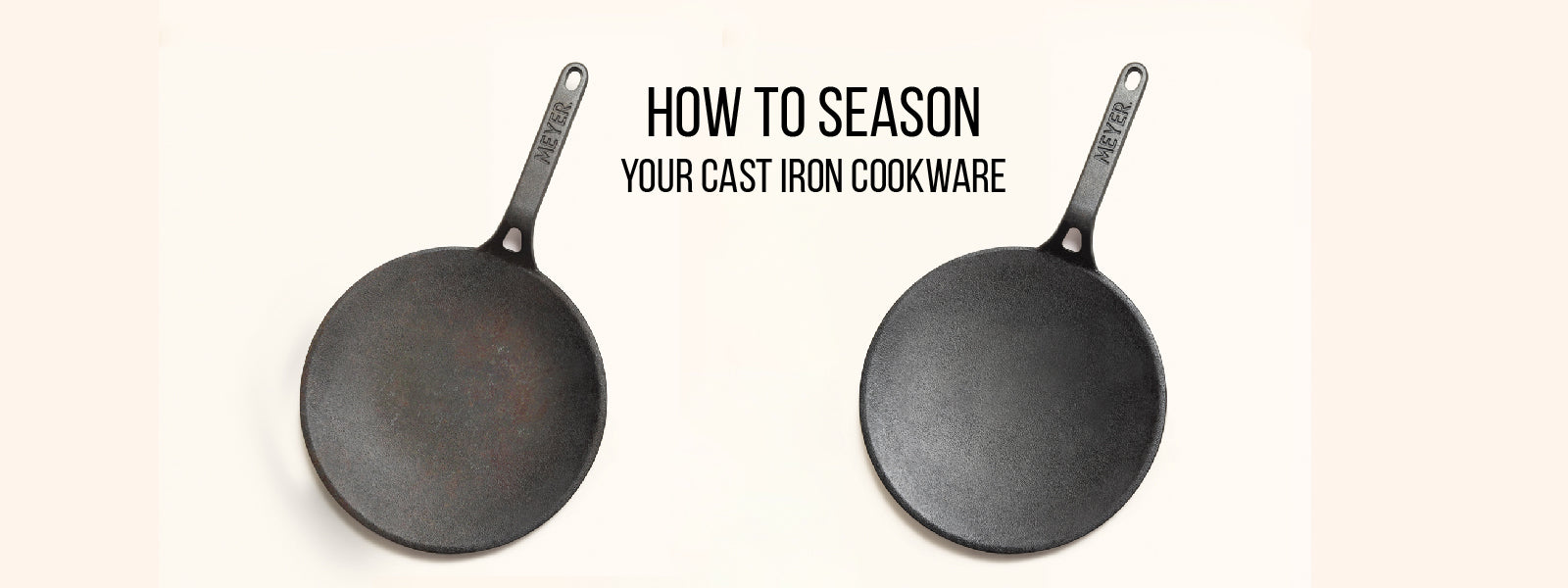
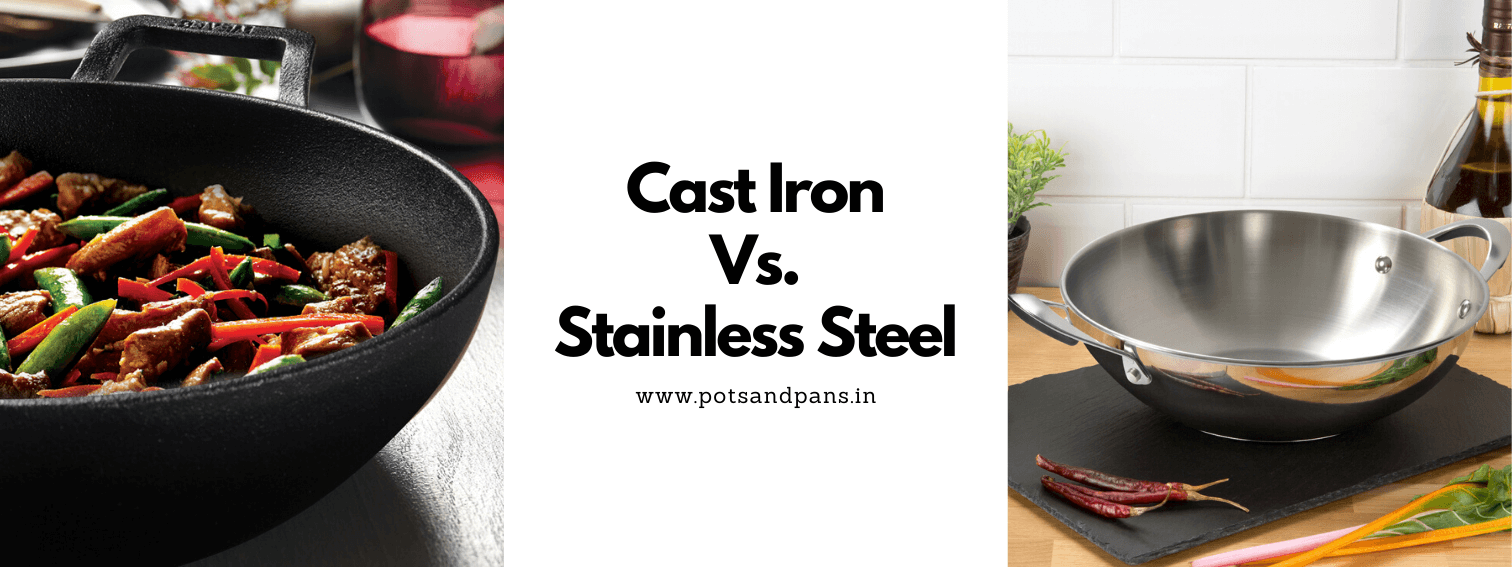
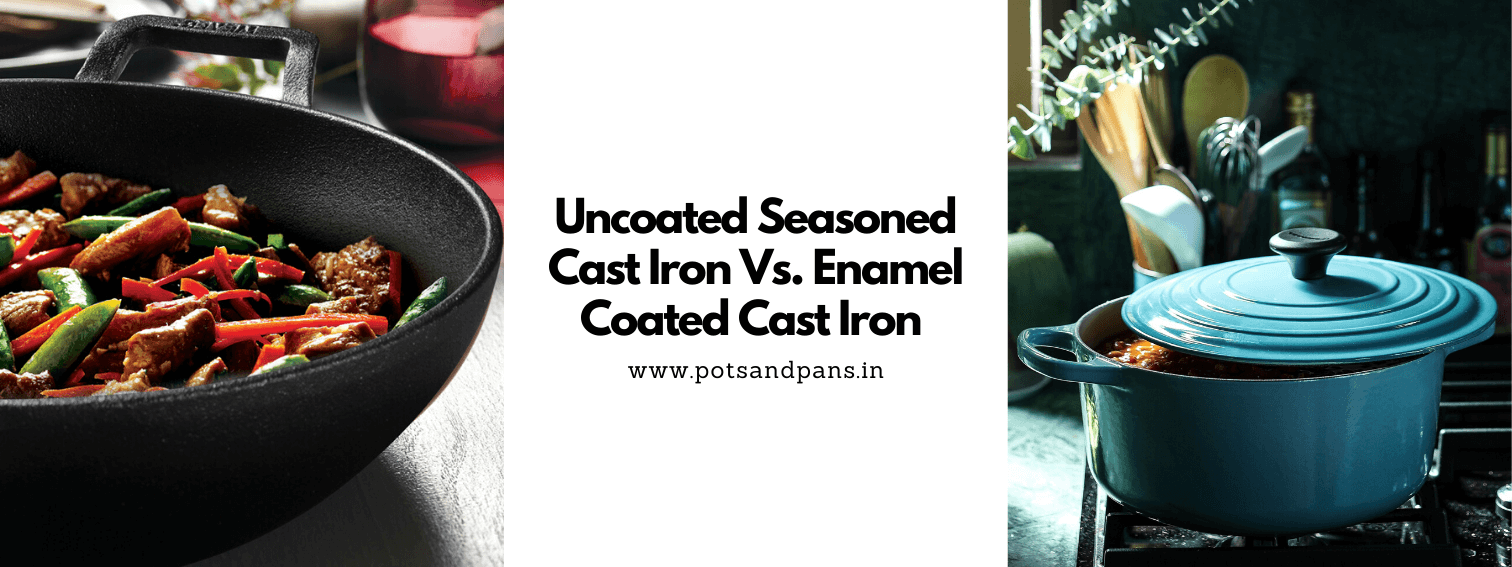
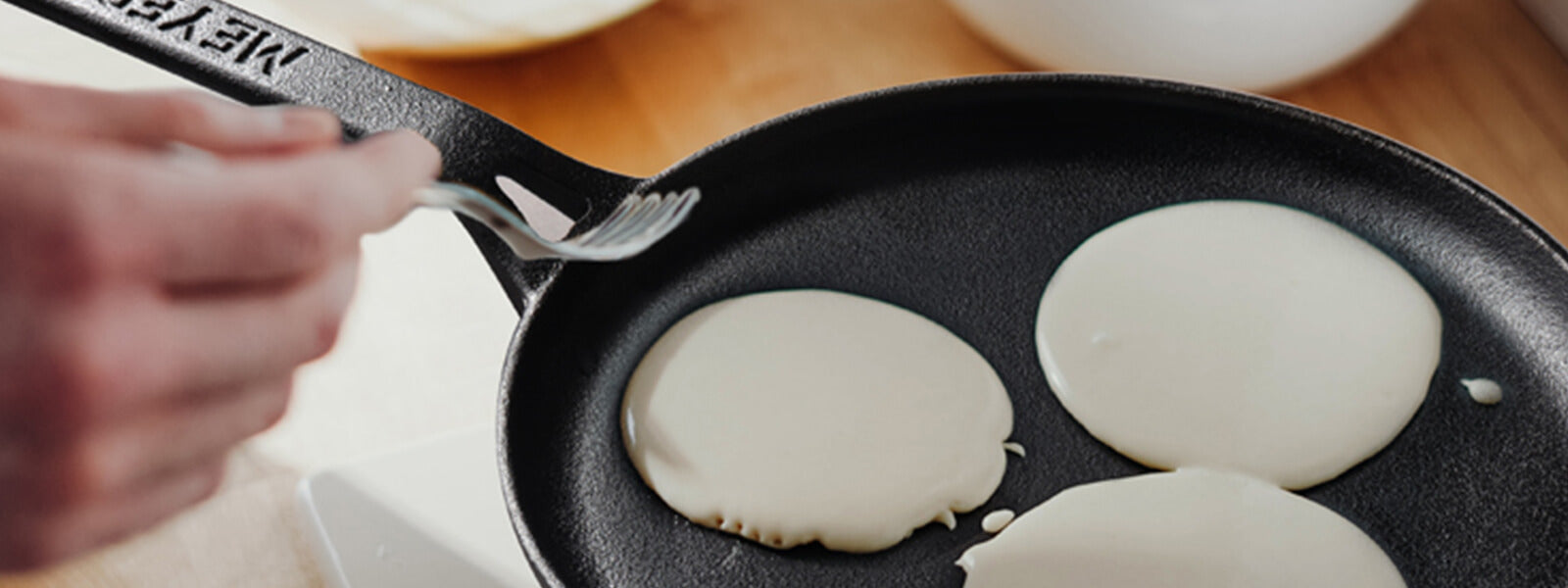
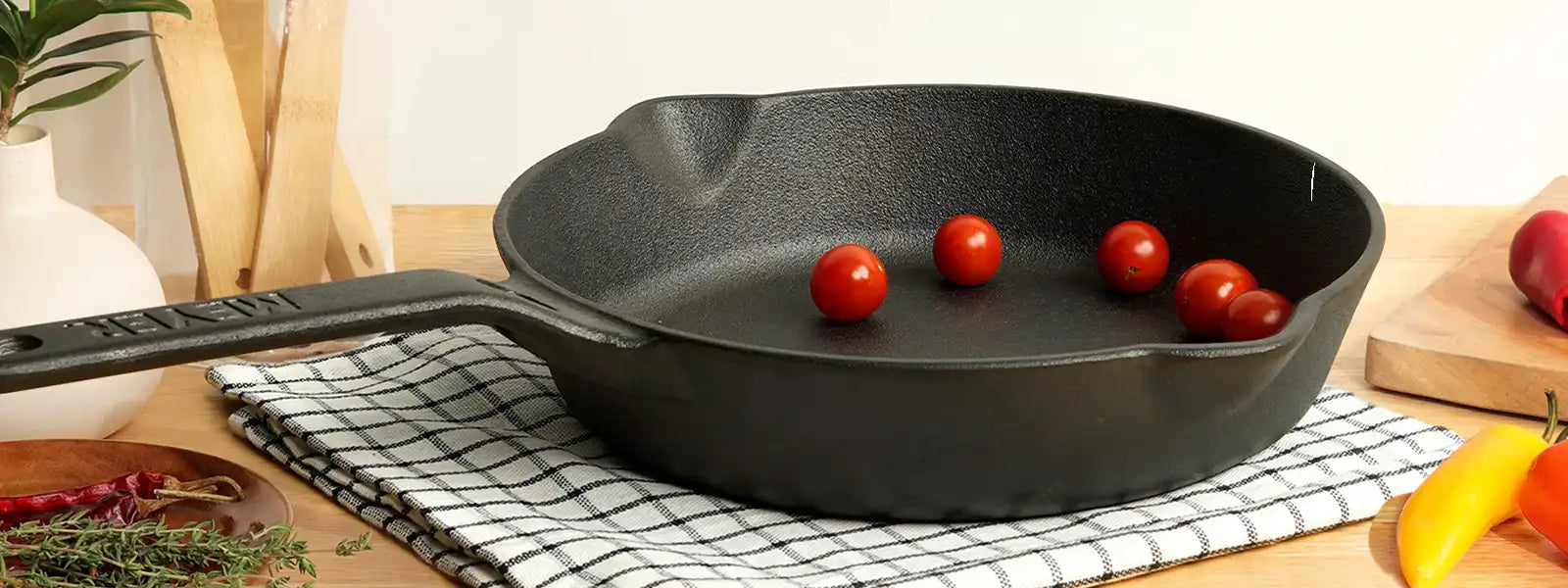
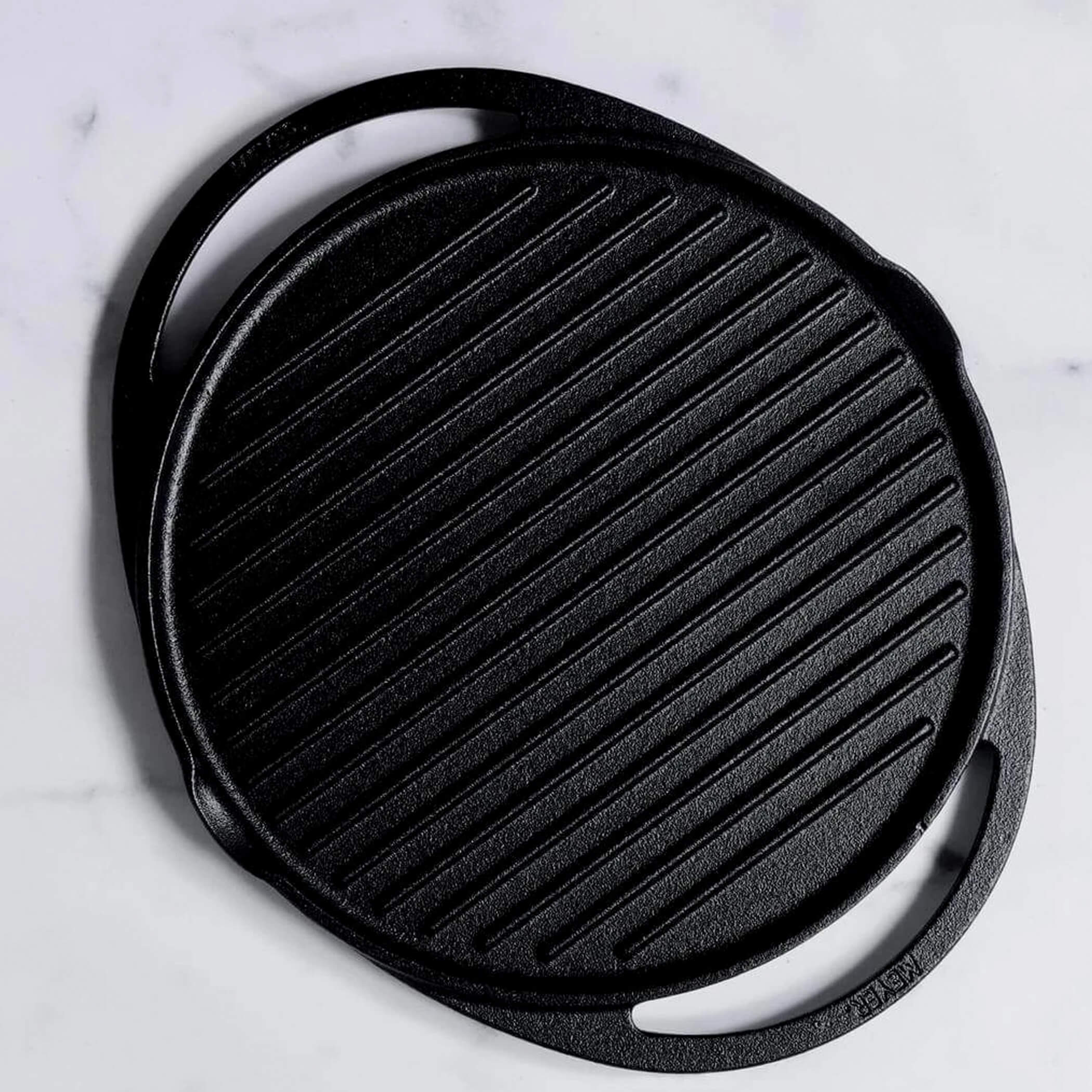
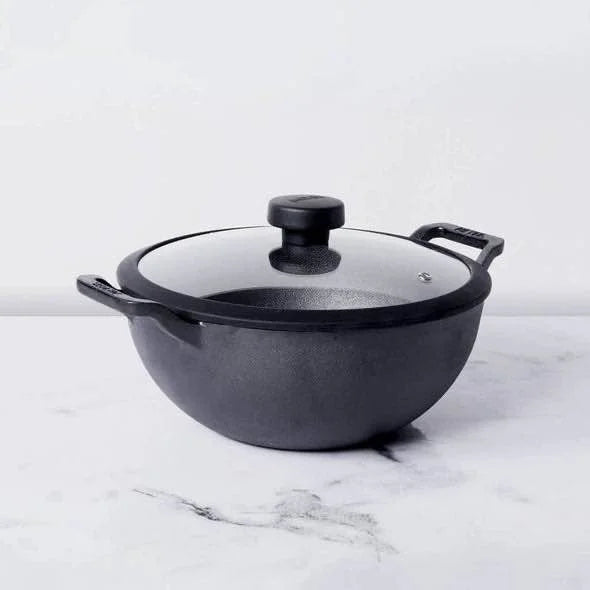




Leave a comment